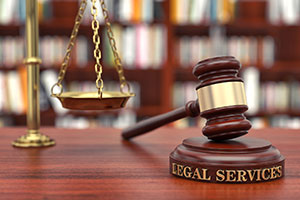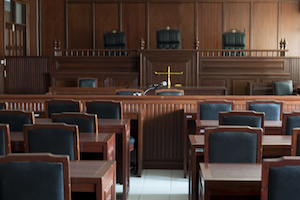Amber Cramer sued Bay Area Credit Service and certain other defendants for violating the Fair Credit Reporting Act (FCRA). She relied on two expert witnesses to prove the violations. The U.S. District Court for the Eastern District of Missouri decided that, subject to certain limitations, the experts should be allowed to testify.
Facts of the Case
When Cramer reviewed her credit report, she discovered she had been the victim of identity theft. Someone using her name had incurred three medical bills. The debts appeared as delinquent on her credit report. Cramer notified the credit reporting bureaus that she disputed the debts and added a fraud alert to her credit report.
Cramer alleged that Bay Area continued to contact her on her cell phone in an effort to collect one of the debts. She notified the debt collector that she had been the victim of identity theft, but the debt collection calls persisted. Cramer sued Bay Area for violating the Fair Debt Collection Practices Act, but the expert testimony at issue in the court’s decision pertained only to the FCRA claim.
Cramer contended that Bay area violated the FCRA by failing to investigate the dispute and to delete the debt from its reports despite being notified that the alleged debt was inaccurate. To prove that Bay Area violated the FCRA, Cramer relied on the expert testimony of Stan Smith and Evan Hendricks. Bay Area moved to exclude the testimony of both witnesses.
Evan Hendricks’ Qualifications
Cramer offered Hendricks’ testimony regarding industry standards for businesses like Bay Area regarding the investigation of disputes before reporting information to consumer reporting agencies. Hendricks also proposed to testify about the ways in which Bay Area violated those standards and the consequences (including emotional distress) that result from inaccurate credit reports.
Bay Area contended that Hendricks was not qualified to testify because he had never been employed by a credit reporting agency and had never personally investigated a credit dispute. The court noted that experts do not need to work for an industry to have specialized knowledge of the industry. In fact, attorneys often prefer to work with an independent expert whose perspective has not been shaped by working within the industry.
Hendricks wrote and published a newsletter that covered various aspects of the FCRA. Her served as a privacy expert consultant for the Social Security Administration, a position that required expertise in the best practices regarding the disclosure of private information.
Hendricks has testified before Congress repeatedly about the FCRA and has given expert testimony in many cases involving FCRA violations. There was no doubt that he was qualified to testify about credit reporting violations.
The court nevertheless agreed that determining whether FCRA violations cause emotional distress requires medical expertise that Hendricks lacked. Although the court did not so rule, it would also be fair to say that ordinary people can understand that bad credit is stressful and that no expert testimony is needed to understand that mistakes on credit report might cause emotional distress.
Nor did the court allow Hendricks to testify about financial harms caused by incorrect credit reports. Hendricks had no accounting background and was not qualified to testify that Cramer suffered a financial loss because of Bay Area’s FCRA violations.
Relevance of Evan Hendricks’ Testimony
Bay Area also moved to exclude Hendricks’ testimony on the ground that Hendricks’ opinions were merely interpretations of the evidence that should be made by the jury and that expert testimony thus invades the province of the jury.
The court concluded that Hendricks should be allowed to testify about relevant industry practices for reporting and investigating consumer credit information, including his opinion that the industry generally applies a “reasonable investigation” standard when consumer credit disputes arise. The court also permitted Hendricks to explain how Bay Area’s actions concerning Cramer either comported with or departed from those industry standards.
The court noted that Hendricks would not be allowed to offer legal opinions, including “opinions on whether Bay Area’s conduct failed to conform to a particular legal standard, as this is an ultimate issue that should be decided by the jury.” He thus could not opine that Bay Area’s actions were “unreasonable, unreliable, inadequate, negligent, willful, or in any other manner violative of the FCRA.”
The court’s ruling required Hendricks to walk an imprecise line. He could testify “broadly over the entire range of the applicable law where the opinion is focused on a specific question of fact,” including facts that relate to industry standards and whether Bay Area’s policies, procedures, and actions complied with those standards. He could not, however, connect the dots by expressing the conclusion that Bay Area violated the FCRA.
Stan Smith’s Testimony
Cramer wanted to call Stan Smith as a damages expert. Smith proposed to testify about Cramer’s loss of credit expectancy, the value of the time she spent dealing with the problem that Bay Area caused, and the reduction in value of her life caused by the inaccurate credit report (also known as loss of enjoyment of life or hedonic damages).
The court disagreed that Smith was unqualified to testify about loss of credit expectancy. Smith has a Ph.D. in economics, has published articles about credit damage, and has participated in national presentations addressing the measurement of credit damages.
Bay area also faulted Smith’s methodology because Smith could not attribute a denial of credit to the false entries in Cramer’s credit report. Smith acknowledged that Cramer was not denied credit after the erroneous information appeared on her credit report.
Smith noted that there is a difference between the loss of credit and the loss of credit expectancy. He relied on Cramer’s testimony that she decided not to seek a mortgage because she feared that her application would be denied because of the untrue information on her credit report. Smith also attributed Cramer’s inability to find a better car insurance rate to her poor credit report.
The court noted that the facts surrounding Smith’s testimony regarding credit expectancy damages were technical. The court apparently found no fault with Smith’s methodology. The court decided that whether the facts supported Smith’s opinions was a question that should be resolved on summary judgment or at trial. The court therefore permitted Smith to give expert testimony about the loss of credit expectancy.
The court rejected the argument that Cramer could not recover the value of her lost time in dealing with erroneous credit reports. Smith’s testimony in that regard was therefore relevant.
The court accepted the argument that Smith could not testify about hedonic damages. The court noted precedent that allows victims of FCRA violations to recover compensation for actual damages, including both economic and non-economic losses. Courts have ruled that humiliation and emotional distress can be awarded even when the victim of an erroneous credit report had no out-of-pocket expenses.
Hedonic damages, however, have generally been awarded only in personal injury cases. Absent a physical injury, the court concluded that damages for the loss of enjoyment of life are unavailable in a FCRA lawsuit.
In addition, Smith based his analysis of hedonic damages on a “willingness to pay” model which considers consumer behavior, wage risk premiums, and a regulatory cost-benefit analysis in measuring the loss of enjoyment of life. The court agreed with several decisions that have deemed that model to be of no value in guiding the jury’s assessment of hedonic damages. The court therefore precluded Smith from testifying about those damages.













